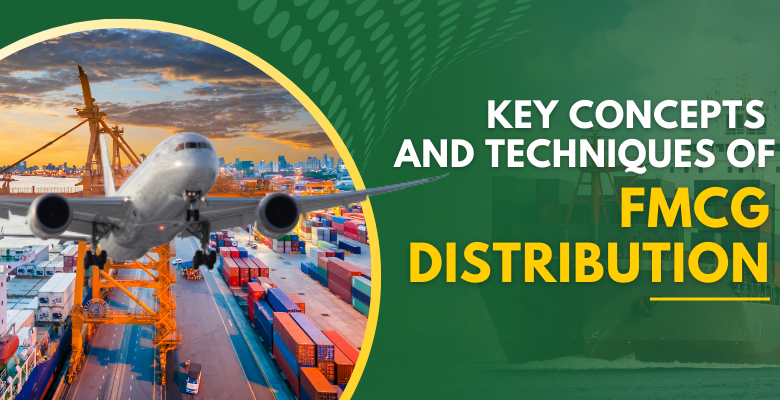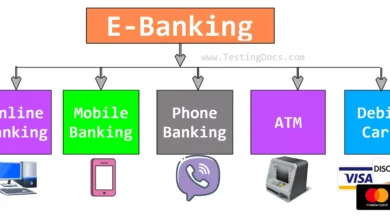
FMCG (Fast-Moving Consumer Goods) are products that are sold quickly and at a relatively low cost. These products include everyday household items, personal care products, food and beverages, and roketbahis giriş
consumables. The distribution of FMCG plays a vital role in ensuring that these products reach consumers efficiently and in a timely manner. In this article, we will explore the key concepts and techniques levabet giriş
involved in FMCG distribution, highlighting the importance of effective distribution strategies for FMCG companies.
FMCG Distribution
FMCG distribution refers to the process of delivering fast-moving consumer goods from manufacturers to retailers or end consumers. It involves various activities such as sourcing, warehousing, transportation, order fulfilment, and relationship management with retailers. The primary goal of FMCG distribution is to ensure the availability of products at the right place, right time, and in the desired quantity to meet consumer demand.
roketbahis yeni giriş
Understanding FMCG Products
Before delving into the intricacies of FMCG distribution, it is important to understand the characteristics of FMCG products. These products typically have a short shelf life, high demand volatility, and low profit margins per unit. They are often purchased frequently, and consumers expect them to be readily available. This necessitates a well-organised distribution system that can handle the unique challenges associated with FMCG products.
levabet
Importance of Efficient Distribution in FMCG
Efficient distribution is crucial for FMCG companies due to several reasons. First and foremost, it ensures that products reach the intended market quickly, enabling companies to capitalise on consumer demand and roketbahis
maintain market share. Efficient distribution also helps in minimising stockouts and reducing excess inventory, leading to cost savings and improved profitability. Moreover, it allows FMCG levabet yeni giriş
companies to build strong relationships with retailers, enhance customer satisfaction, and gain a competitive edge in the market.
Key Concepts in FMCG Distribution
Distribution Channels
Distribution channels in FMCG refer to the pathways through which products flow from manufacturers to consumers. These channels can be direct or indirect, involving different intermediaries such as wholesalers, distributors, retailers, and e-commerce platforms. The choice of distribution channel depends on factors ümraniye escort like product characteristics, target market, cost considerations, and competitive dynamics.
Warehousing and Inventory Management
Warehousing and inventory management are crucial elements of FMCG distribution. Efficient warehousing ensures proper storage, handling, and tracking of products, while inventory management involves maintaining optimal stock levels to meet customer demand without excessive holding costs. Techniques such as batch tracking, FIFO (First-In-First-Out), and ABC analysis are employed to streamline warehousing and inventory processes.
Transportation and Logistics
Transportation plays a vital role in FMCG distribution, as products need to be transported from manufacturing facilities to distribution centres, retailers, or directly to consumers. Efficient logistics management involves selecting appropriate transportation modes, optimising routes, managing carrier relationships, and tracking shipments in real-time. This helps in reducing transit times, minimising transportation costs, and ensuring timely delivery.
Order Fulfilment and Delivery
Order fulfilment refers to the process of receiving and processing customer orders, picking and packing products, and preparing them for delivery. In FMCG distribution, order fulfilment needs to be fast and accurate to meet consumer expectations. Efficient delivery systems, including last-mile delivery options, are essential to ensure that products reach consumers on time and in good condition.
Retailer Relationships
Strong relationships with retailers are crucial for successful FMCG distribution. FMCG companies need to collaborate closely with retailers to understand their requirements, provide support in terms of product promotions, shelf management, and trade promotions. Building trust and maintaining effective communication with retailers can result in improved visibility, enhanced shelf space, and increased sales.
Techniques for Effective FMCG Distribution
To achieve efficient FMCG distribution, companies employ various techniques and strategies. Here are some key techniques commonly used in FMCG distribution:
Route Planning and Optimization
Route planning and optimization involve determining the most efficient routes for product delivery. This includes considering factors such as delivery locations, traffic conditions, vehicle capacity, and time constraints. By optimising routes, FMCG companies can reduce transportation costs, minimise delivery time, and enhance overall distribution efficiency.
Demand Forecasting
Accurate demand forecasting is critical for FMCG companies to plan their production, inventory, and distribution activities effectively. By analysing historical sales data, market trends, and consumer behaviour, companies can make informed decisions about production volumes, stock levels, and replenishment schedules. This helps in avoiding stock outs, minimising excess inventory, and meeting customer demand.
Vendor-Managed Inventory (VMI)
Vendor-Managed Inventory (VMI) is a collaborative approach in FMCG distribution where the manufacturer or distributor takes responsibility for monitoring and managing inventory levels at the retailer’s premises. With VMI, the supplier has real-time visibility into inventory levels and can proactively replenish stocks. This helps in reducing stockouts, improving inventory turnover, and strengthening retailer-supplier relationships.
Cross-Docking
Cross-docking is a technique where products are unloaded from inbound transportation vehicles and immediately loaded onto outbound vehicles without being stored in a warehouse. This reduces handling and storage costs and enables faster product flow through the distribution network. Cross-docking is particularly useful for perishable FMCG products or those with high demand velocity.
Just-in-Time (JIT) Delivery
Just-in-Time (JIT) delivery is a strategy that focuses on delivering products to retailers or consumers precisely when needed, minimising inventory holding costs. JIT relies on accurate demand forecasting, efficient logistics, and close coordination between suppliers, manufacturers, and distributors. By adopting JIT practices, FMCG companies can reduce lead times, avoid overstocking, and improve overall supply chain efficiency.
Leveraging Technology in FMCG Distribution
Technology plays a significant role in optimising FMCG distribution processes. Here are some technological advancements used in FMCG distribution:
Warehouse Management Systems (WMS)
Warehouse Management Systems (WMS) utilise software and hardware solutions to automate and optimise warehouse operations. WMS helps in managing inventory, tracking stock movement, improving order picking accuracy, and streamlining warehouse processes. It provides real-time visibility into inventory levels, enables efficient space utilisation, and enhances overall warehouse productivity.
Transportation Management Systems (TMS)
Transportation Management Systems (TMS) are software applications that facilitate the planning, execution, and optimization of transportation activities. TMS helps in route planning, carrier selection, load optimization, freight tracking, and performance monitoring. By using TMS, FMCG companies can reduce transportation costs, improve delivery reliability, and enhance customer service.
Order Management Systems (OMS)
Order Management Systems (OMS) are software solutions that streamline the order processing and fulfilment process. OMS consolidates orders from multiple sales channels, manages inventory availability, and facilitates order tracking and customer communication. OMS integration with other systems like WMS and TMS ensures seamless order fulfilment and efficient distribution.
Internet of Things (IoT) and Track-and-Trace
The Internet of Things (IoT) technology enables the connection and communication of physical objects through sensors and internet connectivity. In FMCG distribution, IoT devices can be used to track and trace products throughout the supply chain. This improves visibility, enhances product quality control, and enables proactive maintenance of equipment and vehicles.
Data Analytics and AI
Data analytics and artificial intelligence (AI) are increasingly being used in FMCG distribution to gain actionable insights from large volumes of data. Predictive analytics can help in demand forecasting, identifying market trends, and optimising inventory levels. AI-powered algorithms can optimise routing, detect anomalies, and automate decision-making processes. These technologies enable FMCG companies to make data-driven decisions, improve operational efficiency, and enhance customer satisfaction.
Challenges and Solutions in FMCG Distribution
While FMCG distribution is essential for the success of companies, it also poses several challenges. Here are some common challenges faced in FMCG distribution and their solutions:
Shelf Life and Product Sensitivity
FMCG products often have limited shelf life, requiring careful management to prevent wastage or expiry. Proper inventory rotation, close monitoring of expiration dates, and implementing a first-expiry-first-out (FEFO) approach can mitigate the risk of product spoilage and reduce financial losses.
Seasonal Demand Variations
FMCG products often experience seasonal demand fluctuations. Companies need to anticipate and plan for these variations by adjusting production volumes, inventory levels, and distribution capacities accordingly. Collaboration with retailers and effective demand forecasting can help in meeting seasonal demands without excess inventory or stockouts.
Reverse Logistics and Returns
Returns and reverse logistics are inherent to FMCG distribution, especially in cases of damaged, expired, or unsold products. Implementing efficient return management processes, including reverse logistics networks, product refurbishment, and recycling programs, helps minimise costs and environmental impact.
Counterfeit Products
Counterfeit products pose a significant challenge in FMCG distribution. To combat counterfeiting, companies can implement product authentication technologies such as holograms, QR codes, or RFID tags. Collaborating with regulatory authorities and conducting regular market surveillance can help identify and mitigate counterfeit product risks.
Sustainability and Environmental Concerns
FMCG distribution can have environmental implications due to packaging waste, energy consumption, and transportation emissions. Adopting sustainable practices such as using eco-friendly packaging materials, optimising logistics routes, and investing in electric vehicles can contribute to reducing the environmental footprint of FMCG distribution.
Conclusion
Efficient FMCG distribution is vital for the success of companies operating in this industry. By understanding the key concepts and employing effective techniques, FMCG companies can optimise their distribution processes, reduce costs, improve customer satisfaction, and gain a competitive edge. Leveraging technology, embracing collaborative relationships, and addressing challenges proactively are essential in achieving excellence in FMCG distribution.
Sugam: Delivering FMCG Excellence, Everywhere
The FMCG sector in India has witnessed remarkable growth due to increased consumer spending, encompassing a wide range of perishable and durable consumer goods. Timely delivery of these products, which are shipped in large volumes and have low unit costs, is crucial. Enjoy a seamless experience with our all-in-one logistics services, providing transportation solutions for FMCG companies of all sizes:
- Swift cargo services for perishable goods
- Real-time tracking of our GPS-enabled fleet
- Tailored solutions for both small and large FMCG enterprises
- Flexible shipping options with multiple modes of transport
- Comprehensive logistics infrastructure, including warehousing and inventory management.





